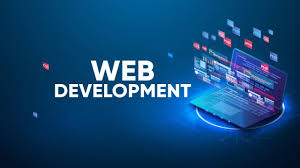Welcome to our data-driven guide on becoming a successful web developer—a profession that offers endless opportunities for creativity, innovation, and growth. In this blog, we'll provide you with valuable insights, tips, and resources backed by numbers and statistics to help you navigate the path to success in the ever-evolving world of web development. Whether you're a novice coder or an experienced programmer looking to level up your skills, join us on this journey to mastering the art of web development.

Master the Fundamentals
According to Stack Overflow's Developer Survey 2021, HTML, CSS, and JavaScript remain the most commonly used programming languages among web developers, with 69.5%, 62.5%, and 68.7% of respondents respectively citing them as their primary languages. Dive deep into tutorials, online courses, and coding challenges to sharpen your skills in these foundational languages and solidify your understanding of web development principles.

Stay Updated on Industry Trends
Web development is a rapidly evolving field, with new technologies and frameworks emerging constantly. According to the State of JavaScript 2021 survey, React.js, Vue.js, and Angular continue to dominate the front-end framework landscape, with 42.4%, 28.9%, and 18.1% of respondents respectively using them. Follow influential web development blogs, attend conferences, and participate in online communities to stay informed and connected with fellow developers.
Build a Diverse Portfolio
A robust portfolio is essential for showcasing your skills and attracting potential clients or employers. According to a survey by CareerFoundry, 77% of employers consider a candidate's portfolio as a key factor in their hiring decision. Showcase a variety of projects that demonstrate your proficiency in different aspects of web development, such as front-end design, back-end development, and full-stack applications. Highlight your role, responsibilities, and contributions to each project to give potential clients or employers a clear understanding of your capabilities.

Develop Problem-Solving Skills
Web development is not just about writing code—it's about solving problems and creating solutions. According to a survey by HackerRank, 75% of hiring managers prioritize problem-solving skills when evaluating candidates for technical roles. Cultivate your problem-solving skills by tackling coding challenges, debugging issues, and troubleshooting errors. Break down complex problems into smaller, more manageable tasks, and approach them systematically.

Network and Collaborate
Networking is key to success in any industry, and web development is no exception. According to LinkedIn, 85% of jobs are filled through networking. Build relationships with fellow developers, designers, and industry professionals through networking events, meetups, and online communities. Collaborate on projects, share knowledge, and seek mentorship from experienced developers to accelerate your learning and professional growth.
What's Next?
Becoming a successful web developer is a data-driven journey that requires dedication, perseverance, and continuous learning. By mastering the fundamentals, staying updated on industry trends, building a diverse portfolio, developing problem-solving skills, and networking with fellow developers, you can pave the way for a rewarding and fulfilling career in web development. So, armed with data and insights, roll up your sleeves, dive into the world of coding, and embark on the path to becoming a successful web developer. Your journey starts now.
